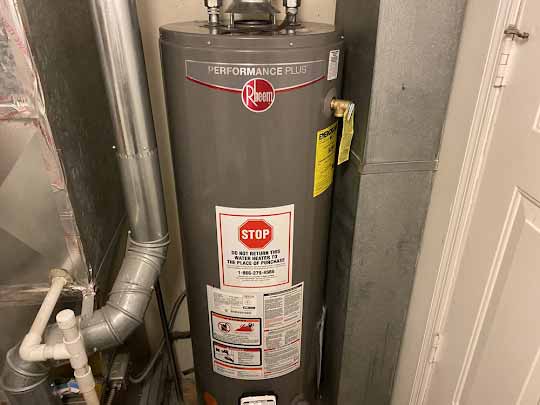
If you are in the market for a new water heater, whether because you are building or remodeling your home or your old water heater has run its course, this post is for you. When buying a new water heater, the first thing to do is to decide which one to buy.
But given the different types of water heaters on the market, knowing the right one for your house can be a considerable challenge, says JTS Management. What are the factors to consider when making this decision? Find all the answers to your questions about buying the best type of water heater in this post.
Here are the key factors in determining if a specific water heater is right for your home.
Water heater capacity
This is not just about the absolute size of the water heater; but how many gallons the tank can contain. It is about the size of the tank in relation to the size of your home. The size of your household – the number of bedrooms and bathrooms in the house – is what you should consider.
For conventional water heaters (units that come with a tank), the standard guideline for choosing the right size is:
- Two bathrooms/bedrooms or less (30 gallons or less)
- 2-4 bathrooms/bedrooms or less (40 gallons)
- 3-5 bathrooms/bedrooms or less (50 gallons)
- Five or more bathrooms/bedrooms or less (60 gallons or more)
For tankless water heaters, the calculations are different since they don’t come with tanks. When buying a tankless water heater, the right size depends on how much hot water will be needed at a time.
Water heater function
Based on how they operate, there are two main types of water heaters: whole-house systems and point-of-use systems. Most water heaters are whole-house systems, and this category of water heaters can be further divided into; heat pumps, gas tanks, electric tanks, and tankless water heaters.
- Point of use water heaters: These deliver water to specific parts of the home, such as the kitchen or bathroom. They are mainly used to augment an existing whole-house water heater.
- Electric water heater: In an electric water heater, cold water is heated using the electric heating elements inside the tank.
- Gas water heater: In place of electricity, this system uses gas. Unlike electric systems, which don’t need a vent, gas water heaters must be vented outside.
- Heat pump water heater: They also use electricity but employ a different method for heating cold water than conventional electric water heaters.
- Tankless water heaters: These are powered by gas or electricity. They do not have tanks and so don’t take up as much space as tank systems.
Fuel type
Water heaters may run on electricity, gas, solar power, or a combination.
- Electric systems: These work the same way as an electric oven. Generally, electric tanks are not as efficient as other water heaters. Electricity is also more expensive than natural gas or propane, although electric tank systems cost less.
- Gas systems: Natural gas heaters are more efficient than electric water heaters. In most places, natural gas also costs less than electricity. But the initial cost of buying and installing a gas water heater is higher than that of an electric water heater.
- Propane systems: These work in the same way as natural gas systems. They are preferred in locations where natural gas access is limited or absent. The fuel is supplied by a large gas tank installed on the property.
- Heat pump systems: These use electricity but operate differently from a standard electric tank heater. Heat pumps are 2-3 times more efficient than conventional electric tank water heaters, but the upfront cost of the unit is higher.
Other factors to consider
- Energy efficiency: Think twice before buying a water heater if Energy Star does not rate it. Look for the Energy Star logo on the body of the unit.
- Initial cost: Tank electric ($450-$1,200); gas tank ($500-$1,500); heat pumps ($1,300-$3,000); and tankless ($800-$1,200). Annual fuel cost is more important than the initial cost because it is long-term. For a family of four: tank electric ($400-$500+); gas tanks ($200-$300); heat pump ($104-$160); and tank-less ($175-$225)
- First-hour recovery: This is how much hot water you can get out of the system in the first hour. The worst performer is the electric tank system, while heat pumps and tankless systems are the best.
- Maximum temperature: This is how hot you can make your hot water. Tankless, gas and electric systems all have a maximum of 140 degrees F. Heat pumps can go as high as 160 degrees F.
To sum up, what is the best water heater for your home? Based on the needs of your home, you can use the information above to answer the question.

